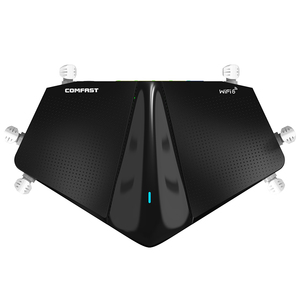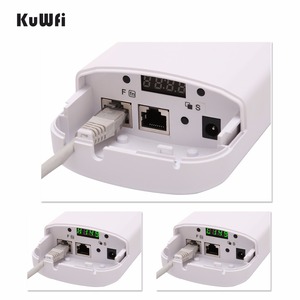(765 products available)



































































































































































































































A mobile WiFi access point is a device or hotspot that provides internet access to devices like laptops, smartphones, and tablets, all while on the move. It's become an essential tool for both individuals and businesses seeking reliable connectivity outside of traditional fixed-line internet solutions. Commonly known as mobile Wi-Fi, portable Wi-Fi, or hotspot access points, this technology leverages cellular networks' power to deliver seamless online experiences, irrespective of location.
Mobile WiFi Access Points come in various types, including:
A mobile WiFi access point has many features that connect devices to a stable internet source. Here are some of them:
Portability
A portable mobile WiFi access point is small and easy to move. It is lightweight and battery-powered. Users can put it in a bag and take it anywhere. People will stay connected for work and fun even when they are far from home.
Range of Connectivity Options
A mobile WiFi access point allows users to connect to the internet from many places. It provides flexible connectivity options. They include Ethernet, 3G, 4G, and 5G connections. Some models have satellite connectivity for very remote areas. The ability to connect through different options gives users access to the internet almost anywhere.
Setup and Configuration
Setting up a mobile WiFi access point is simple. It does not take a long time. A person has to turn on the device. Then, the person needs to insert a SIM card with a mobile data plan (if it's a cellular model). The access point connects to a mobile network based on the type of SIM card installed. For devices with satellite capabilities, the user can set up the satellite dish. For other connectivity options, the user connects through the Ethernet port. Once the device is powered and connected to a network or internet source, users can join the WiFi network it broadcasts. The default WiFi network name and password are usually on the device or can be accessed through its settings. More complex configurations are also possible through its web interface or mobile app, like security settings and parental controls.
Device Management
A mobile WiFi access point allows users to manage connected devices. Features like a web interface or mobile app let users see which devices are online. They can control devices by blocking unwanted connections or prioritizing certain devices with features like QoS. Users can also adjust settings like bandwidth usage for fair sharing. Managing devices improves the internet experience by giving users greater control over network present and resources.
Network Security
Network security helps protect data and privacy. Measures like WPA2 or WPA3 wireless security protocols keep data safe from unauthorized access. VPN support allows encrypted communication channels between the access point and other internet resources. Firewall protection helps block threats. Features like MAC address filtering let users control which devices can connect. Strong passwords and regular updates also help prevent attacks. Network security safeguards sensitive information while ensuring a safe browsing environment.
Extended Battery Life
Extended battery life is a feature of a mobile WiFi access point that ensures constant internet access. These portable devices have batteries that last for several hours or days on a single charge. People can use them for long trips, outdoor activities, or emergencies.
Multiple User Connections
A mobile WiFi access point allows many users to connect at once. That is why it is a popular choice for sharing internet access. This is made possible through dual-band or tri-band technology. These access points use different frequency bands to provide several simultaneous connections. Each band gives a unique signal that devices can join. The ability to connect many users at the same time makes the access point useful for places like offices, homes, or public events where many people need internet access.
Durable Design
Access points that create mobile WiFi are built strong. They use tough materials that resist wear and tear. The shine of the durable design is useful for outdoor activities like camping or traveling. Their long-lasting build means access points can be trusted to work well and give internet access for long periods in any condition.
Remote Area Internet Connectivity:
Mobile WiFi access points play a crucial role in providing internet connectivity to remote areas. When satellite or cellular-based internet services are the only options, these devices become indispensable tools for connecting to the internet. By using mobile WiFi access points, individuals and communities in remote areas can stay connected to the world even when other means of communication fail or are unavailable altogether.
Outdoor Activities:
Outdoor enthusiasts rely on mobile WiFi access points to stay connected during adventures. Whether hiking, camping, or traveling, these compact devices allow people to hotspot their devices and share cellular data wirelessly. So, one could check maps and navigation apps offline, share photos instantly with friends, stay updated on weather conditions, and even connect for work remotely. Being able to maintain a mobile network connection while engaged in outdoor pursuits provides peace of mind and connectivity advantages.
Mobile Office:
Mobile WiFi access points have transformed the way people work on the go by enabling the creation of mobile offices. With reliable internet connectivity provided through tethering or portable hotspots, individuals can set up a functional workspace anywhere, from coffee shops and airports to remote job sites. This connectivity allows seamless communication, productivity, and access to cloud-based tools and resources, ensuring that professionals can stay connected and continue working effectively, regardless of their location.
Internet Backup and Redundancy:
Mobile WiFi access points serve as a valuable backup solution for internet connectivity. By providing an alternative connection through tethering to a smartphone or a portable hotspot, they ensure that users can stay online even during outages or disruptions with their primary broadband service. This redundancy is particularly important for businesses and remote workers who rely heavily on the internet for communication, transactions, and productivity. With a mobile WiFi access point as a backup connection, one can quickly switch and mitigate the impact of internet downtime.
Several factors should be considered when choosing a portable Wi-Fi access point for mobile use to fit user needs and preferences.
Size and weight
Considering its compact size and lightweight portable Wi-Fi access points should be easy to carry around. Users might want to look at the measurements and weight of various options to determine which ones suit their requirements the best.
Battery life
Most portable Wi-Fi access points rely on their battery power to function outside the home or office. Therefore, the battery life of a mobile Wi-Fi access point determines how long users can stay connected before recharging it. Users should check how many hours a Wi-Fi access point can last on a single charge and choose one that fits their needs.
Connectivity options
Users may need to know how many devices they can connect to a portable Wi-Fi access point at once. Different access points have different maximum device limits. Consider any devices users want to connect simultaneously and look for an access point that supports that number or more.
Durability
For outdoor use, users might need a portable Wi-Fi access point that can withstand some bumps, spills, and bad weather. Think about what conditions the access point will face and choose one that's built to last in those situations.
Signal range
Users may want to check how far a portable Wi-Fi access point's signal can reach. That way, they can avoid getting disconnected when situated within the signal range.
Data limits
Users should be aware that portable Wi-Fi access points have a maximum amount of data they can use each month. That is called a data allowance. To prevent extra charges or slow speeds, users should be sure to see how much data they are allowed each month with the specific access point they choose.
Features
Extra features that come with a Wi-Fi mobile hotspot can be useful. Users need to determine if any of these features are important and look for access points that have them: support for multiple frequency bands (2.4GHz and 5GHz); a companion app for managing settings from a smartphone; the ability to connect other devices through ethernet ports (tethering); or support for virtual private network (VPN) connections.
Cost
Lastly, consider the cost of a mobile Wi-Fi access point and its features to aid in making an affordable choice that suits budget and value requirements.
Q1: How does a mobile Wi-Fi access point work?
A1: Simply put, this device works by converting a cellular signal into a Wi-Fi signal. It uses either a SIM or a USIM card to connect to a mobile network. Once connected, it can create a secure wireless network by providing internet access to multiple devices. This technology enables people to stay connected to the internet, even in areas with no fixed broadband connectivity.
Q2: Can a mobile Wi-Fi access point be used abroad?
A2: Yes. However, its availability and the networks it can connect to may vary from country to country. It’s important to check if the device is supported by local mobile networks before purchasing one. Also, some portable access points come with multi-band or multi-network support, which allows them to work on different frequency bands and networks.
Q3: Can a mobile Wi-Fi access point work without a power source?
A3: No. These devices require power to function. Fortunately, most of them come with rechargeable batteries that can power the device on the go. Users can also charge the device using a power bank if it runs out of battery power.
Q4: How many devices can a mobile Wi-Fi access point support?
A4: Different models support varying numbers of simultaneous connections. Typically, a mobile access point can support anywhere between 10 to 50 connections at once. Users should check the specifications to determine how many connections a specific model can handle.
Q5: Is the signal from a mobile Wi-Fi access point secure?
A5: Yes. Access points use WPA2 or WPA3 encryption to secure the signal. These protocols help protect the network from unauthorized access and keep the data transmitted over it safe. Additionally, users can use the device's settings to control who can connect to the network by requiring them to use a passphrase.